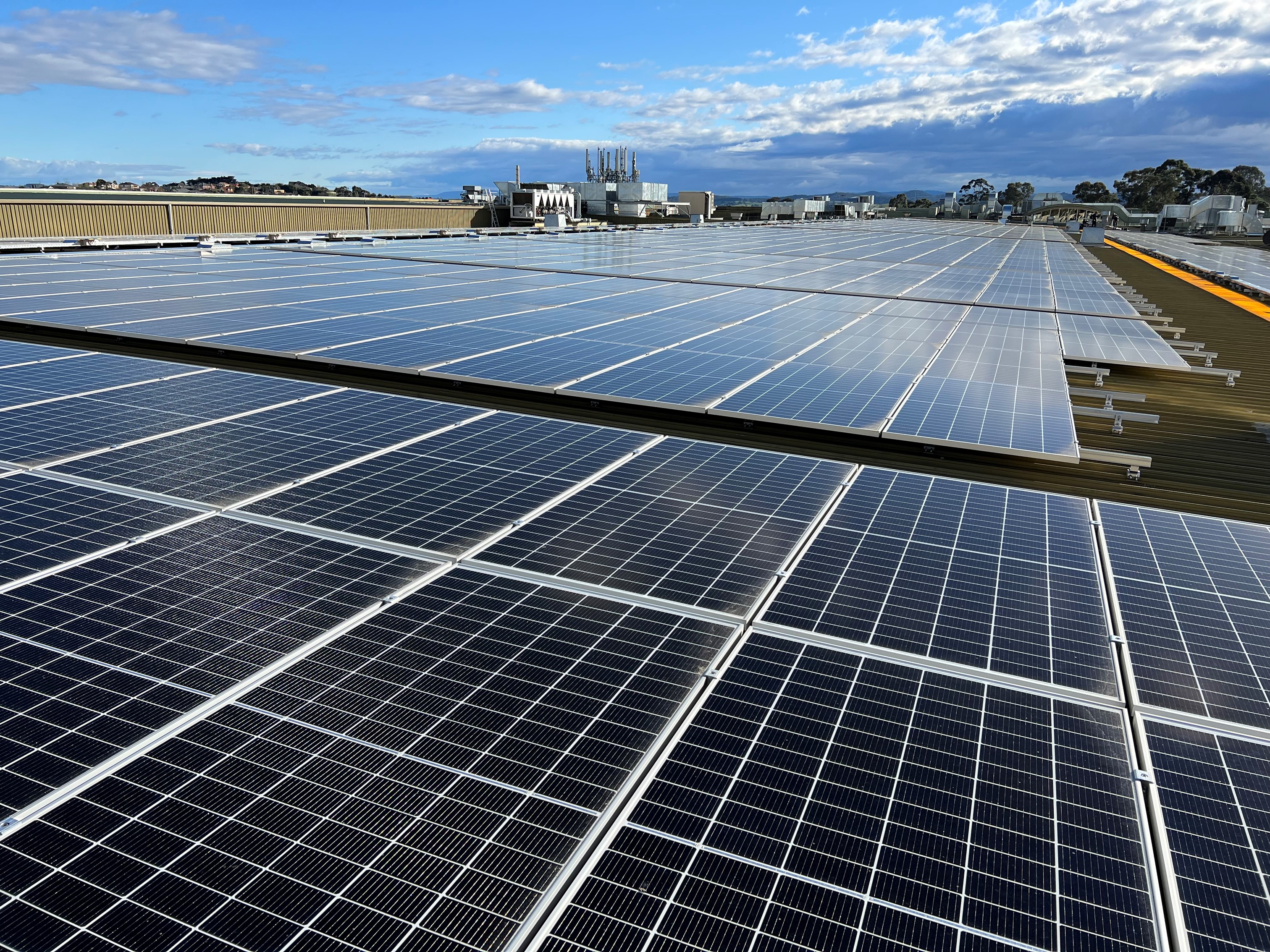GPT’s Energy Master Plan enabled the Group to effectively manage record high energy prices from 2022 to 2023 with both energy management and procurement processes being important contributors. These processes continue to evolve to manage what is forecast to be a turbulent period in energy markets.
Energy is one of the most significant operational building expenses for GPT, making the effective management of price volatility a priority.
Under the Energy Master Plan, GPT drives decarbonisation by eliminating and reducing the energy consumption and exposure to shifting markets through:
- continued efficiency and plant optimisation programs,
- on-site solar electricity generation,
- off-site long term renewable energy contracting utilising Large-scale Generation Certificates,
- electrification of heating infrastructure, and
- Shifting to low/no greenhouse warming potential refrigerants.
The Energy Master Plan focuses on a resilient transition that responds to the changing nature of energy infrastructure as we shift to a low carbon economy. GPT is investing in managing the impacts of a less dispatchable renewable supply through shifting our demand to periods of lower supply constraint and installing battery storage to dispatch when energy prices are highest.
In addition, we have adopted a progressive procurement approach for our retail energy, minimising exposure to periods when energy markets are highly priced and providing certainty for our business. Across our owned and managed assets, GPT manages a forecast electricity procurement portfolio in excess of 130,000 GWh per annum.
GPT’s former procurement practice, in place until 2019 and still common in the industry, was to go to market every 1 to 3 years for its electricity contracts. GPT’s contract cycles usually aligned with late autumn or winter tender processes to avoid summer peak demand activity.
In 2022, those previous practices would have placed GPT in the energy market at a time of historically high prices for contracts in 2023 and beyond. Instead, our progressively procured retail electricity contract prices were secured at circa 60 per cent lower than energy market prices during our traditional contracting periods. At its most extreme, there was a seven-fold difference between our contract rates and market rates in several quarters in Queensland during 2022.
For calendar year 2023, progressive procurement resulted in $14.7 million of avoided costs when compared to traditional contracting. The traditional energy contracting rate would have resulted in around $60 million of additional cost during 2023 if GPT had continued to operate at our 2005 baseline intensity, meaning our long term investment into energy efficiencies continues to contribute significantly to avoided costs in our business. Detailed data is available in our Sustainability Data Dashboard.
As energy is an operational expense, much of the benefit of GPT’s proactive approach to managing energy price risk is passed on to tenants, with savings varying according to lease structures. These improved financial and environmental outcomes have been made possible through GPT’s continuous focus on energy efficiency, our understanding of market conditions and our agility to respond when opportunities arise.
In this example, the principles that have delivered our environmental goals have also delivered lower and more stable costs and continue to mitigate much of the risks of more expense and volatile energy markets during a transition to a low carbon economy.
